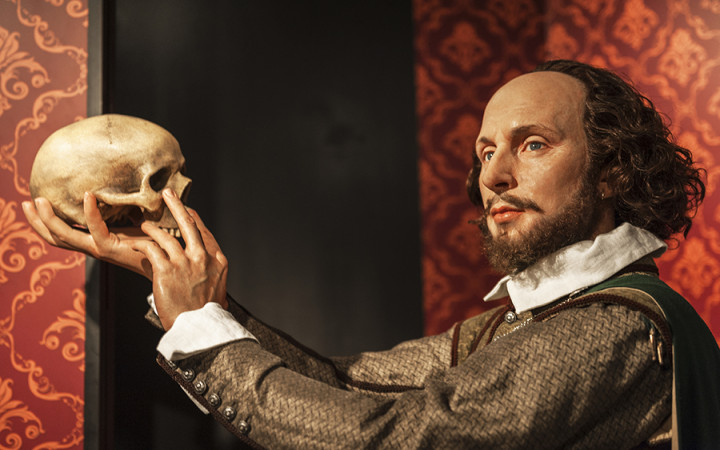Today’s Wonder of the Day was inspired by Elizabeth. Elizabeth Wonders, “Did Shakespeare really write his plays?” Thanks for WONDERing with us, Elizabeth!
To be, or not to be, that is the question. At least that's the question posed by Hamlet in one of Shakespeare's most famous works.
Are you a fan of Shakespeare? English literature teachers are quick to sing his praises, but students who prefer the Harry Potter or Hunger Games novels might think Shakespeare is for the birds. And they wouldn't be entirely wrong! Let us explain.
Arguably no other has had as much time and energy devoted to his works than Shakespeare. Experts on Shakespeare have noted for many years that Shakespeare loved birds.
When examining his imagery, experts claim that he refers to birds more than any other animal and falconry than any other outdoor sport. Moreover, Shakespeare's use of falconry terminology reveals evidence of personal experience with the sport.
Falconry involves training birds of prey, such as falcons, hawks, and eagles, to hunt waterfowl and small animals, like rabbits, pheasants, quail, and grouse. Experts believe the sport dates back to at least the first century B.C.
Shakespeare used falconry terms more than 50 times in his various works. For example, in The Taming of the Shrew, Petruchio compares taming his new bride to training a hawk. Specifically, he compares her to a haggard, which was the term for a wild hawk that might never be completely trained.
The term "haggard" remains part of the English language today, meaning careworn, unkempt, disheveled, or wild. Thanks to Shakespeare, several other falconry words and phrases remain widely used today.
If you've ever tried to keep something or someone "under your thumb," you're using a falconry phrase that referred to how falconers wrap a bird's tethers around their little finger and pinch the ends under their thumb to keep control of the bird. The practice is also the source of the phrase "wrapped around your finger."
To keep birds from being distracted, falconers cover their heads and eyes with a tiny leather hood. This practice led to the English term "hoodwinked" to refer to being tricked or deceived by concealing one's true motives.
If you've ever been fed up with someone or something, then you're using yet another falconry term. When birds of prey eat, they keep eating until their stomachs are full and they can't fit any more down their throats.
They're literally "fed up" to the point where they can't consume any more food. Falconers don't want their birds to be fed up, because they don't like to hunt when they're not hungry.
An interesting issue that arises when one considers Shakespeare's use of falconry terms is how he became familiar with falconry. When Shakespeare was alive, falconry was a sport reserved primarily for wealthy nobles. So how did a young man with a modest background and education become a falconer?
Some experts believe the answer is that Shakespeare wasn't a falconer and therefore did not write the works that bear his name. Instead, they point to Edward de Vere, the Earl of Oxford, as the true of Shakespeare's works, citing de Vere's background with falconry and his own use of similar falconry terms in the poems that bear his name.




